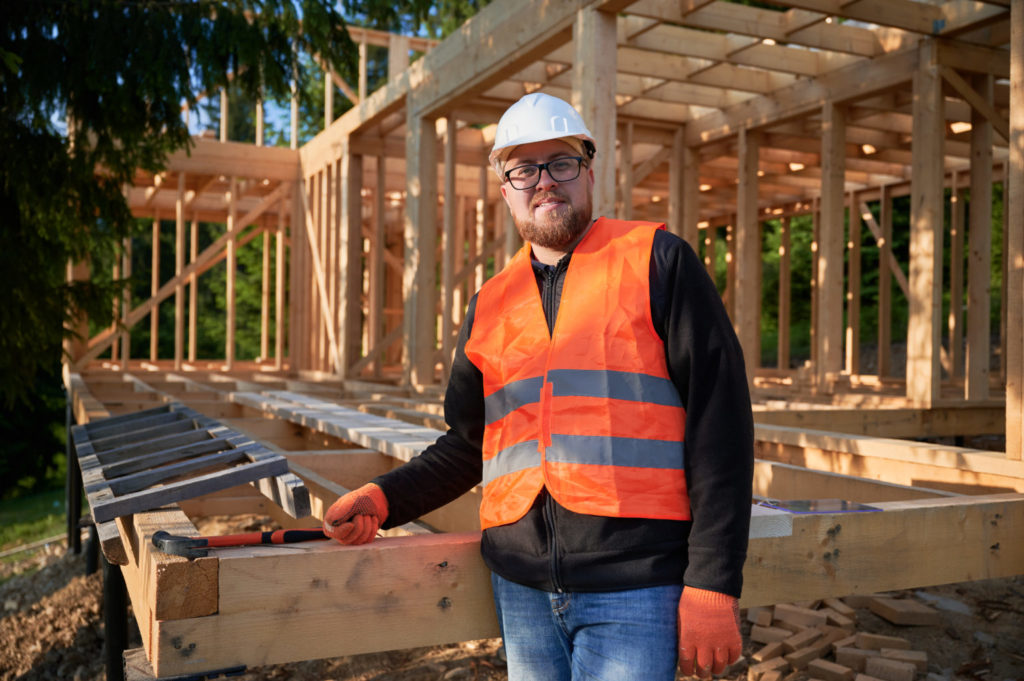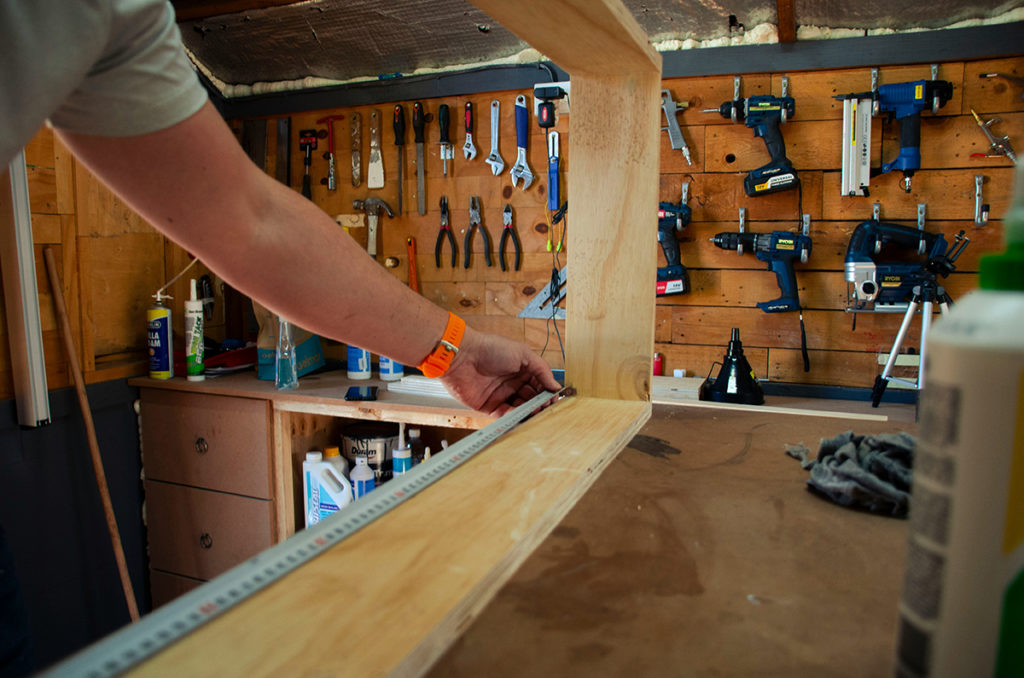Repairs and maintenance SMEs need to skill up on decarbonisation, shows survey
Smaller building firms are less confident than larger ones in delivering the decarbonisation of the UK’s 30m existing homes and need support, argues the Federation of Master Builders, FMB.
More than 90 per cent of firms employing 8-13 people were ‘very’ or ‘fairly’ confident compared to over 60 per cent of sole traders according to a survey of 200 SME builders.
Less than a third of the respondents said their clients ‘always’ or ‘often’ asked about energy efficiency or low carbon technologies with 40 per cent saying they were ‘rarely’ or ‘never’ asked.
FMB chief executive Brian Berry said: “Presently, there is limited demand from consumers to carry out the work on their homes.”
Firms identified several barriers to energy efficiency and low or zero-carbon technologies, with the most frequently cited being high costs and low consumer demand.
Cost barriers included the additional time and labour required to increase competence, not only technology costs.
Respondents expressed a preference for ‘learning on the job’ despite the financial and reputational risk of this approach.
The FMB wants to see a funded structure of support for SMEs including mentoring to avoid problems of poor workmanship.
“A robust regulatory system needs to be put in place to guarantee the competence of builders, setting minimum standards to ensure high-quality work that people can trust. This is an issue which has been ignored by successive governments for far too long,” said Mr Berry.
New build offers clearer decarbonisation path
Many firms reported that it was easier to incorporate low carbon concerns into new builds compared to repair maintenance and improvement because the regulatory position was clearer.
Repairs and maintenance businesses said less than six per cent of clients ‘always’ asked about energy and carbon efficiencies compared with more than 12 per cent of firms specialising in new build.
The research conducted by Leeds and Nottingham Trent universities on behalf of the FMB revealed the need for clear government guidance on retrofit standards and support for SMEs.
Leeds University’s sustainability research institute director professor Alice Owen said: “The builders themselves seem ready and willing to take up the challenge; they need help in creating the real market demand that will lead to action.”
Nottingham Trent University’s professor of buildings and energy policy Gavin Killip said the findings were a guide for government and business on how to move forward with retrofitting.
“Clearly if we are to meet climate targets, consumer incentives to instil confidence to upgrade homes will be a necessity and this in turn will create a much-needed market for the builders delivering it.
“There is huge potential for businesses growth, with the added benefits of improved standards, local job creation, warmer homes, reduced bills and ultimately lower emissions and healthier people – there just needs to be an ambitious plan to make it a reality.”
Brokers Hank Zarihs Associates said development finance lenders were keen to see SMEs supported on upskilling because retrofitting looked set to be an important sector for new business.
When firms work on new-build projects, client interest in energy efficiency and LZCTs is stronger than for projects in existing homes.
Firms’ reported confidence* in their own ability to answer customer queries and deliver energy-related works is higher than the amount of consumer interest reported.
Smaller building firms are less confident than larger ones in their ability to answer customer questions about energy and deliver energy efficiency and LZCTs on projects
Builders have confidence they will meet market demand for retrofitting, should it increase. However, this confidence highlights the need for clear, robust standards of competence to ensure quality delivery.
Small construction firms have clear preferences for the kind of training that works for them, which may not be sufficient to ensure that quality criteria are met.
Firms identify several barriers to energy efficiency and LZCTs, with the most frequently cited barriers being high costs and low consumer demand.
Cost barriers include the additional time and labour required to increase competence, not only technology costs.
Many construction firms rely on regulation or design by others to guide their work, where such regulation or design exists.
Many firms believe that it is easier to incorporate low carbon concerns into new build compared to Repair Maintenance & Improvement (RMI) because the regulatory position is clearer.
Retrofit revolution requires competent builders, warns the FMB
A survey of 200 small and medium enterprises (SMEs) in construction was carried out in November 2023, providing a nationwide snapshot of these SMEs’ perspectives on the market for decarbonising homes in the UK.
Construction firms and installers of home energy systems are vital to achieving these goals, but their voices are rarely heard, because this is a group who are too busy, and too disconnected from policy, to represent themselves in the fora where policy is developed.
sole traders and smaller firms undertake a huge amount of the RMI work where improvements in energy efficiency and low carbon technology are urgently needed. This is a sector that needs to be supported and enabled to create high quality virtual enterprises developing from existing place-based networks.
The confidence in being able to deliver a low carbon project, if a client asks for it, indicates what we know from research elsewhere2 . Builders want to learn on the job, by tackling real problems. But learning ‘on the job’ also entails real risk for them in financial and reputational terms, if there is not a structure of support, mentoring and snagging/corrective measures all as part of a funded package.
The UK is in need of a retrofit revolution, but it is essential that householders feel confident in the people carrying out upgrades to their homes if the UK is to deliver the scale of rollout of needed, according to research carried out on behalf of the Federation of Master Builders (FMB), by Professor Alice Owen, University of Leeds, and Professor Gavin Killip, Nottingham Trent University.
Brian Berry, Chief Executive of the FMB, commented: “What this research clearly shows is that SME builders across the country stand ready to deliver the retrofit revolution the UK desperately needs. However, presently there is limited demand from consumers to actually carry out the work on their homes. The key to boosting this will be putting a robust regulatory system in place to guarantee the competence of builders, setting minimum standards to ensure high-quality work that people can trust. This is an issue which has been ignored by successive governments for far too long. The first King’s Speech following the election is taking place this week, and there is an opportunity to generate real momentum in the retrofit sector, which must not be wasted.”
Prof. Alice Owen, Director of the Sustainability Research Institute, Leeds University said: “This research brings to light the opinions of small, local building firms who are often forgotten in the discussions of how we reduce home energy bills. It will be this group that end up doing the work of upgrading – retrofitting – millions of the nation’s homes, so their opinions matter. It appears there is work to do to ensure that the nation’s local builders are able to retrofit homes, not least in getting clear guidance from Government on a robust set of standards to support the rollout. However, the builders themselves seem ready and willing to take up the challenge; they need help in creating the real market demand that will lead to action.”
Prof. Gavin Killip, Professor of Buildings & Energy Policy at Nottingham Trent University said: “The findings of this research are a valuable guide for how government and business must move forward with plans for retrofitting the UK’s homes. Clearly if we are to meet climate targets, consumer incentives to instill confidence to upgrade homes will be a necessity and this in turn will create a much-needed market for the builders delivering it. There is huge potential for businesses growth, with the added benefits of improved standards, local job creation, warmer homes, reduced bills and ultimately lower emissions and healthier people – there just needs to be an ambitious plan to make it a reality.”












